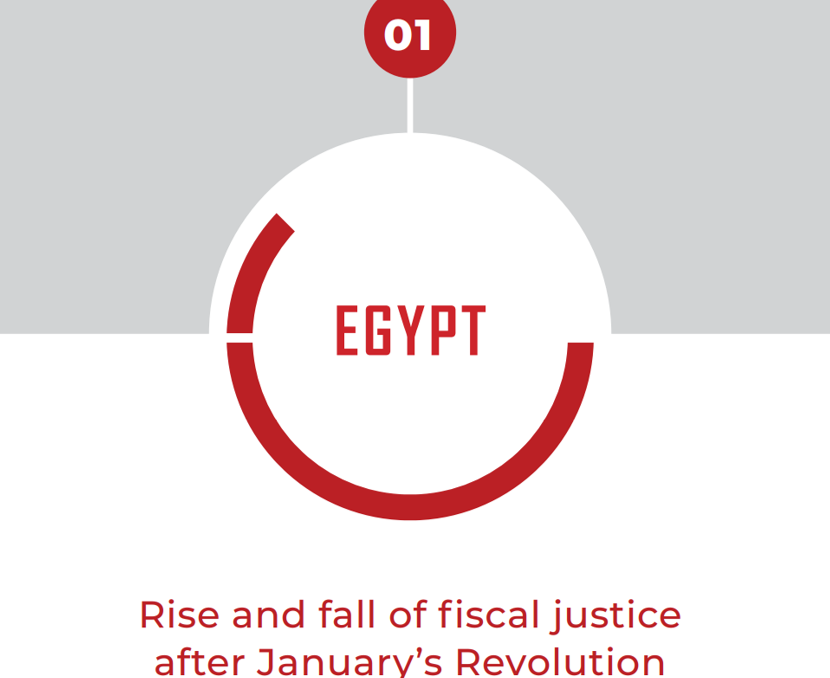

Introduction
Following the January 25 Revolution, fiscal policies were relatively unclear, reflecting the political momentum of 2011, and the conflict between the revolution’s call for just policies and the business community’s resistance to such policies.
As Finance Minister from 2004 to 2011, M. Youssef Boutros Ghali had implemented a set of fiscal policies, reducing custom fees, unifying income taxes at 20%, and passing the real estate tax law. He planned to turn the sales taxes’ system into Value Added Tax (VAT). Ghali built his fiscal philosophy around alleviating businessmen’s fiscal burden to encourage them to pay their taxes. He believed that tax liability will stimulate the investments they make thus indirectly affecting gross tax revenue. Ghali’s fiscal philosophy was severely attacked by anti-Mubarak currents which gained political momentum after the fall of the former president in 2011. In this paper, I will go through fiscal
policy changes in the years following the revolution and will determine how close or far they are from social justice goals advocated for by January’s revolution.
The paper divides the fiscal policies’ evolution into different phases according to the legislations implemented during each fiscal year after January’s revolution and analyses these policies’ effect on the country’s financial situation through the available data on these years’ final accounts
Click here for the full report: Rise and fall of fiscal justice after January’s Revolution
This is a part of "Report on Taxes and Social Justice in the Arab Countries" studies
Recent publications

